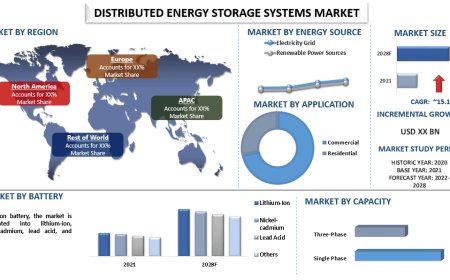The Rise of Paper Bags in the Food Industry in London: A Sustainable Shift
In recent years, there has been a noticeable shift towards more sustainable and eco-friendly practices in various industries, and the food sector in London is no exception. One of the most prominent changes has been the increased use of paper bags in place of plastic ones. This shift is driven by growing environmental concerns, consumer demand for sustainable solutions, and regulatory policies aimed at reducing waste. As a result, paper bags are becoming a staple in restaurants, food markets, takeaways, and supermarkets across the city.
The Environmental Impact of Plastic Bags
The transition from plastic to paper bags in Londons food industry comes as a response to the increasing awareness of the environmental hazards posed by plastic. Plastic bags, though lightweight and inexpensive, take hundreds of years to decompose. They often end up in the oceans, where they pose significant risks to marine life. Moreover, plastic bags are made from petroleum-based products, contributing to carbon emissions and the depletion of natural resources.
In contrast, paper bags are biodegradable, recyclable, and often made from renewable resources. They have a much smaller carbon footprint when compared to plastic bags, especially when produced using sustainable forestry practices. Given Londons commitment to becoming a more sustainable city, the move towards paper bags is seen as a step in the right direction.
Consumer Preferences and Trends
Londoners are increasingly conscious of their environmental footprint. As the awareness of plastic pollution grows, consumers are demanding more sustainable alternatives. According to a survey conducted by environmental organizations, a significant majority of Londoners would prefer to use paper bags if given the option, especially in food-related purchases. As a result, many food businesses in the city are responding to this demand by switching to paper bags.
Paper bags are not just environmentally friendly, but they also offer a more premium, aesthetically pleasing experience for consumers. Many food businesses, particularly those in the artisanal and organic food sectors, use paper bags to reinforce their brand image and attract customers who value sustainability. Paper bags can be printed with logos and designs, creating a unique and personalized touch that is difficult to replicate with plastic.
Government Regulations and Policies
In addition to consumer demand, government regulations have played a significant role in driving the adoption of paper bags. In 2015, the UK government introduced a 5p charge for single-use plastic carrier bags in supermarkets and large stores. This initiative led to a dramatic reduction in plastic bag usage, as shoppers began opting for reusable bags or paying the small charge for paper bags. The success of this policy highlighted the effectiveness of incentivizing change through small financial penalties.
Building on this success, the UK government has since introduced more comprehensive measures to combat plastic waste. These include restrictions on single-use plastics in various sectors, including the food industry. In response, many businesses have begun adopting paper bags as a substitute for plastic bags to ensure compliance with these new regulations.
The Benefits of Paper Bags in the Food Sector
The benefits of using paper bags in Londons food industry are multifaceted. First, paper bags are perceived as safer and healthier for food storage. Unlike plastic bags, which can leach harmful chemicals into food when exposed to heat or sunlight, paper bags are non-toxic and provide a more natural form of packaging.
Second, paper bags are versatile. They can be used for a variety of food items, from takeaway meals to fresh produce. Many restaurants and takeaway outlets in London have embraced paper bags as part of their packaging solutions. Whether its a gourmet sandwich from a local deli or a traditional fish and chips meal, paper bags are sturdy enough to hold different types of food while maintaining their integrity.
Third, paper bags are an effective tool in promoting brand sustainability. Businesses in the food industry are using paper bags as an opportunity to communicate their commitment to the environment. Many local cafes, delis, and restaurants in London are choosing to package their food in paper bags printed with messages about sustainability or their eco-friendly sourcing practices.
Challenges and Considerations
While the shift to paper bags is largely positive, there are challenges to consider. For instance, the production of paper bags, while less harmful than plastic, still requires natural resources and energy. Paper bags are often heavier than plastic bags, which can increase their carbon footprint in transportation. Additionally, if not recycled properly, paper bags can contribute to landfill waste.
Businesses in the food industry must also contend with the cost factor. Paper bags are typically more expensive than plastic bags, which can pose a challenge for smaller businesses. However, as the demand for sustainable packaging rises, the cost of paper bags is expected to decrease over time due to economies of scale.
Looking Ahead: The Future of Paper Bags in London
The shift towards paper bags in the food sector in London is part of a broader movement towards sustainability. As more businesses adopt paper bags, consumers can expect a more widespread availability of eco-friendly packaging options. With further advancements in sustainable production methods and increased awareness about the importance of reducing waste, the future of paper bags in the food industry looks bright.
In conclusion, the rise of paper bags in Londons food industry represents a significant step towards a more sustainable future. As consumers, businesses, and governments work together to reduce plastic waste, paper bags offer a viable alternative that aligns with environmental goals. While challenges remain, the growing adoption of paper bags in food-related establishments signals a positive shift in the right direction for both the food industry and the planet.





































